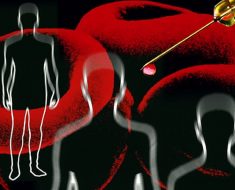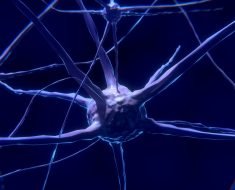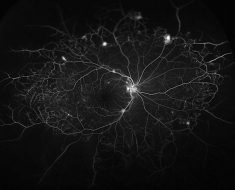New research led by investigators at Case Western Reserve University School of Medicine and University Hospitals Cleveland Medical Center suggests that the location of immune cells in the body determines whether they help or harm the development of heart disease. The study supports the view that the immune system directly impacts heart failure—still the leading cause of death for men and women in the United States.
In the current issue of the Proceedings of the National Academy of Sciences, researchers showed immune cells located within the heart are activated quickly after injury and protect the heart from damage. However, at later stages of injury, immune cells circulating in the blood enter the heart and worsen disease. Blocking migration of these late stage blood-borne immune cells to the heart improved symptoms in mouse models of heart disease. Despite the cells being the same type—macrophages that engulf cellular debris—the two populations have different functions.
“We showed immune cells in the heart act as ‘good guys’ and reduce heart damage, while immune cells that are in the bloodstream and later migrate to the heart act as ‘bad guys’ and promote damage,” said lead author Xudong Liao PhD, assistant professor of medicine at Case Western Reserve University School of Medicine.
The researchers studied a particular type of heart disease known as non-ischemic cardiomyopathy. The disease decreases the heart’s ability to pump blood, and can be inherited, or a side effect of hypertension or other heart valve conditions. Liao and colleagues showed high pressure in the heart affected by the disease causes beneficial immune cells in the heart to reproduce. Pressure increases activate genetic factors that promote local, beneficial immune cell growth. But as other immune cells begin to arrive, conditions worsen. The researchers showed newly arrived immune cells prevent local immune cells from helping the heart adapt to damage.
The discovery led the researchers to investigate ways to preserve the beneficial effects of immune cells found inside the heart. The team injected mouse bloodstreams with flagged immune cells and tracked how the cells migrated to the heart. They then injected the mice with a small inhibitor molecule that prevents the cells from migrating.
“Strikingly, if you block the immune cells in the bloodstream from entering the heart, you can ameliorate heart failure in our animal models” said senior author Mukesh K. Jain, MD, vice dean for medical sciences at Case Western Reserve University School of Medicine and chief scientific officer at University Hospitals Cleveland Medical Center. Blocking immune cell migration represents a novel therapeutic approach for non-ischemic cardiomyopathy. According to Jain, a patent has already been filed in relation to the discovery.
Source: Read Full Article





